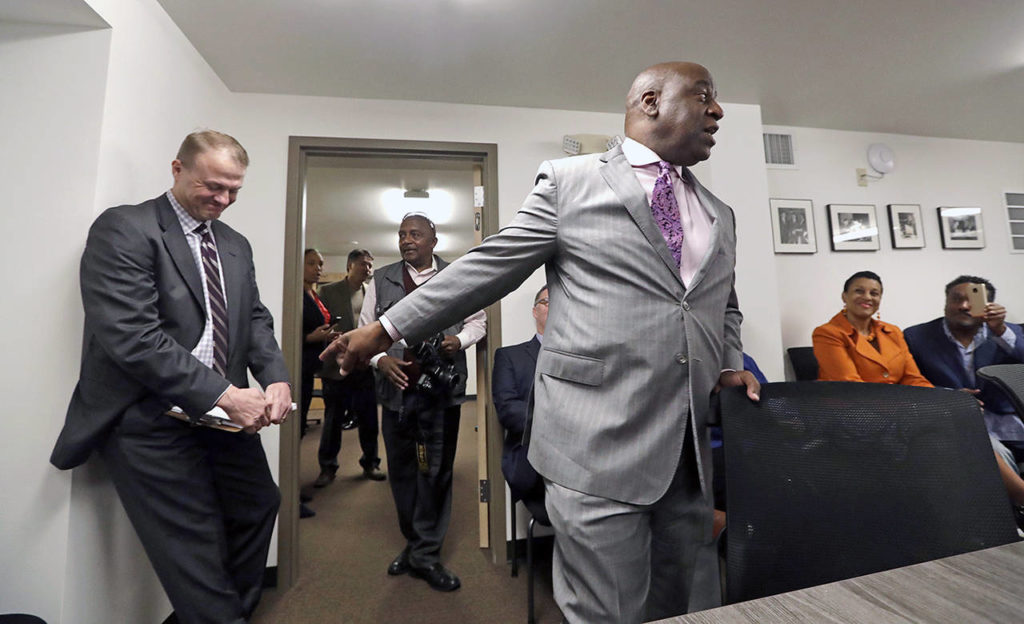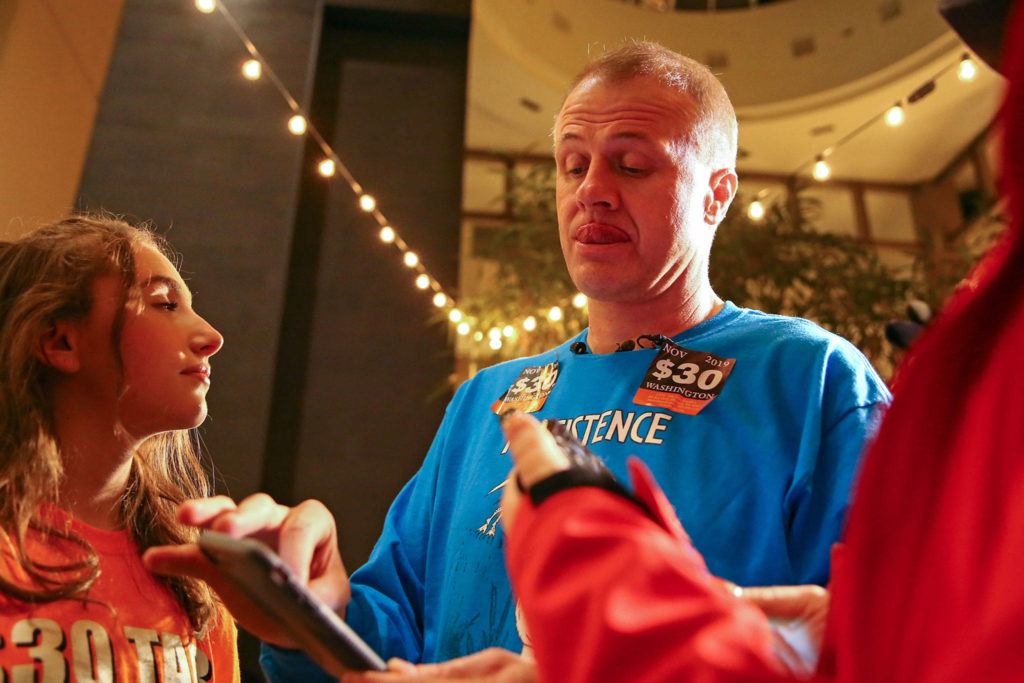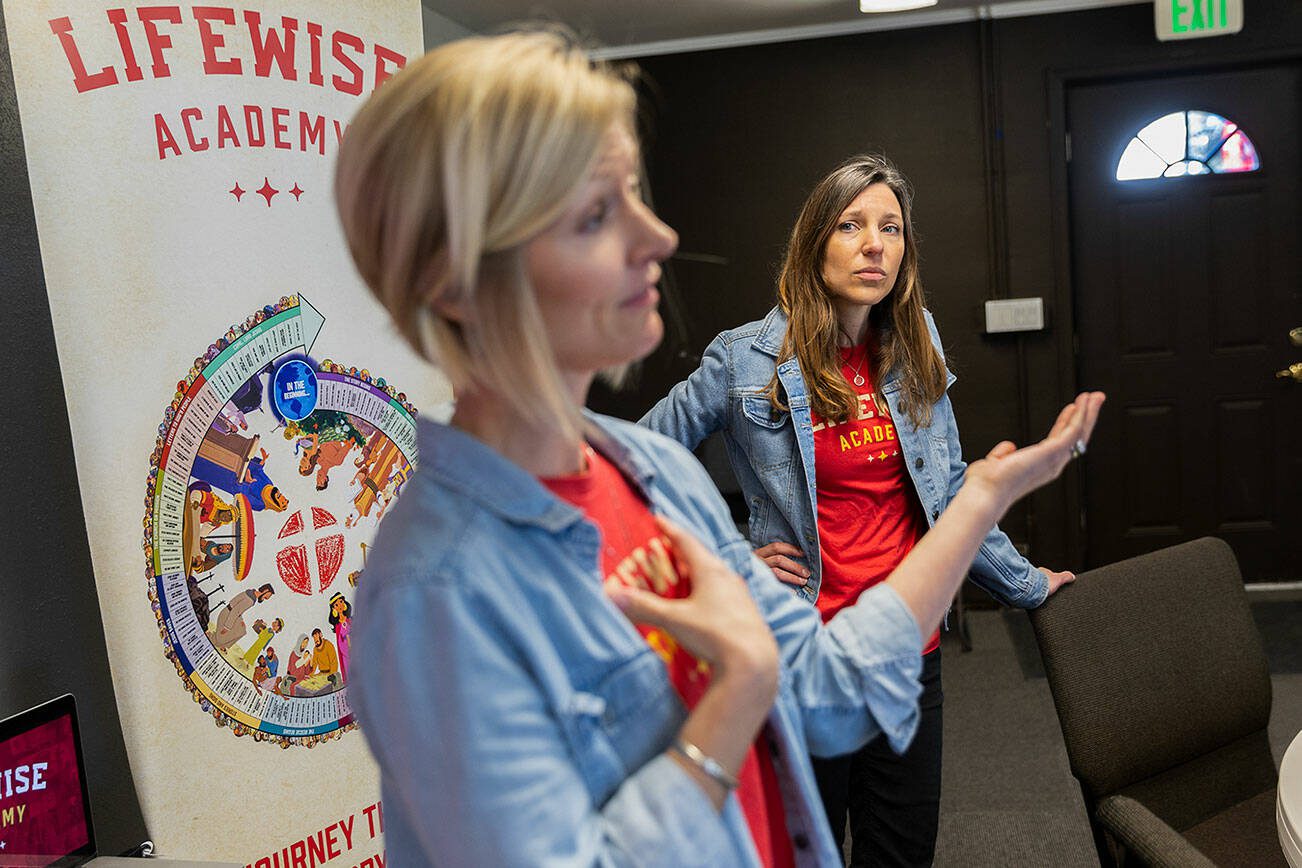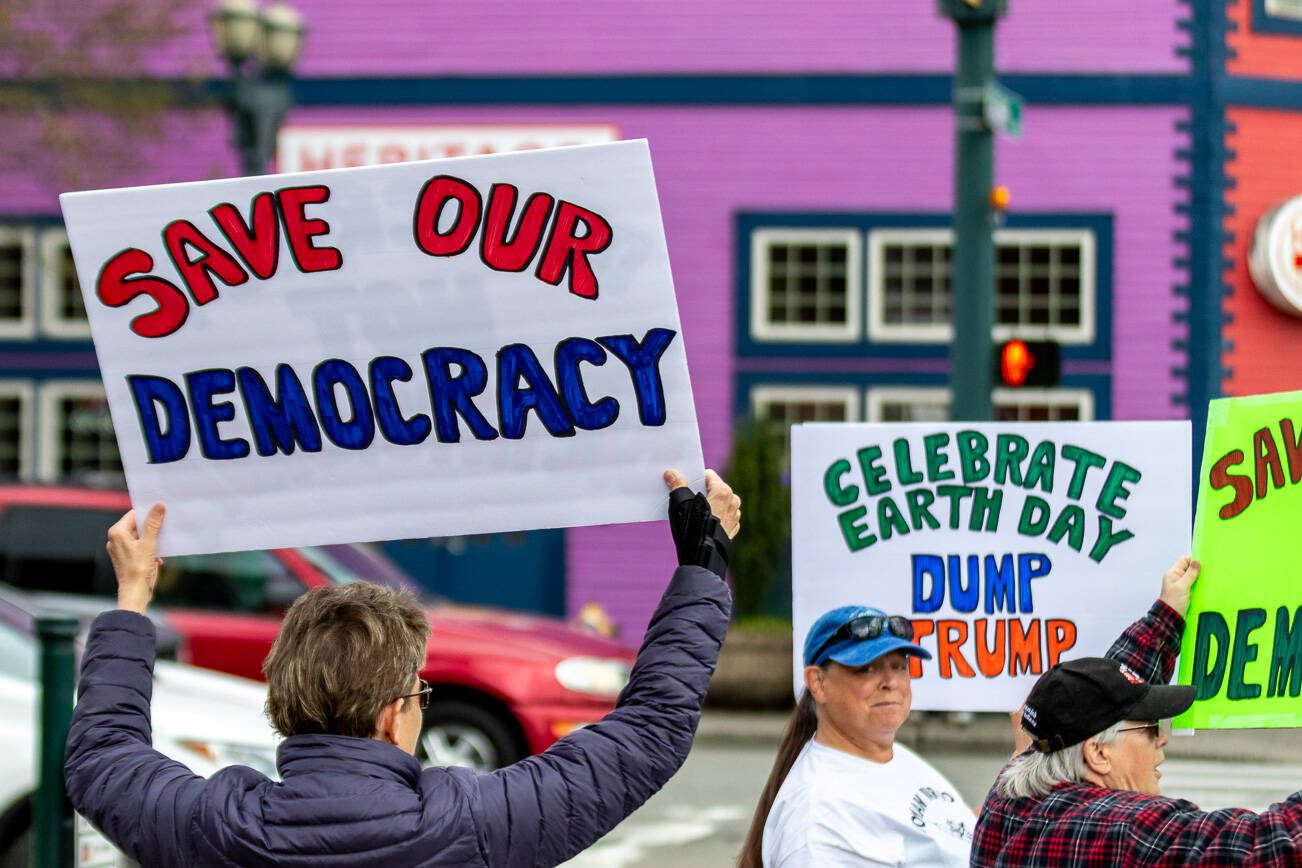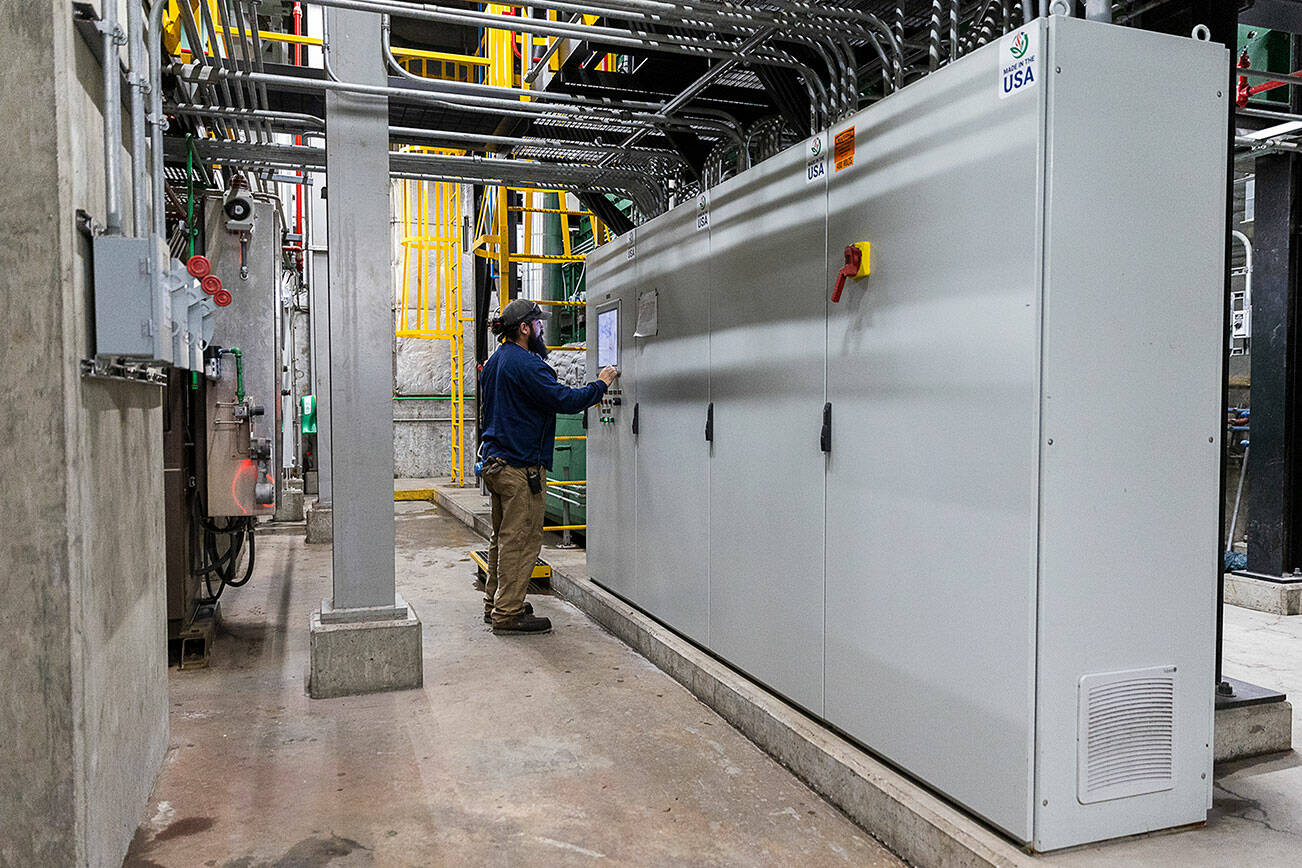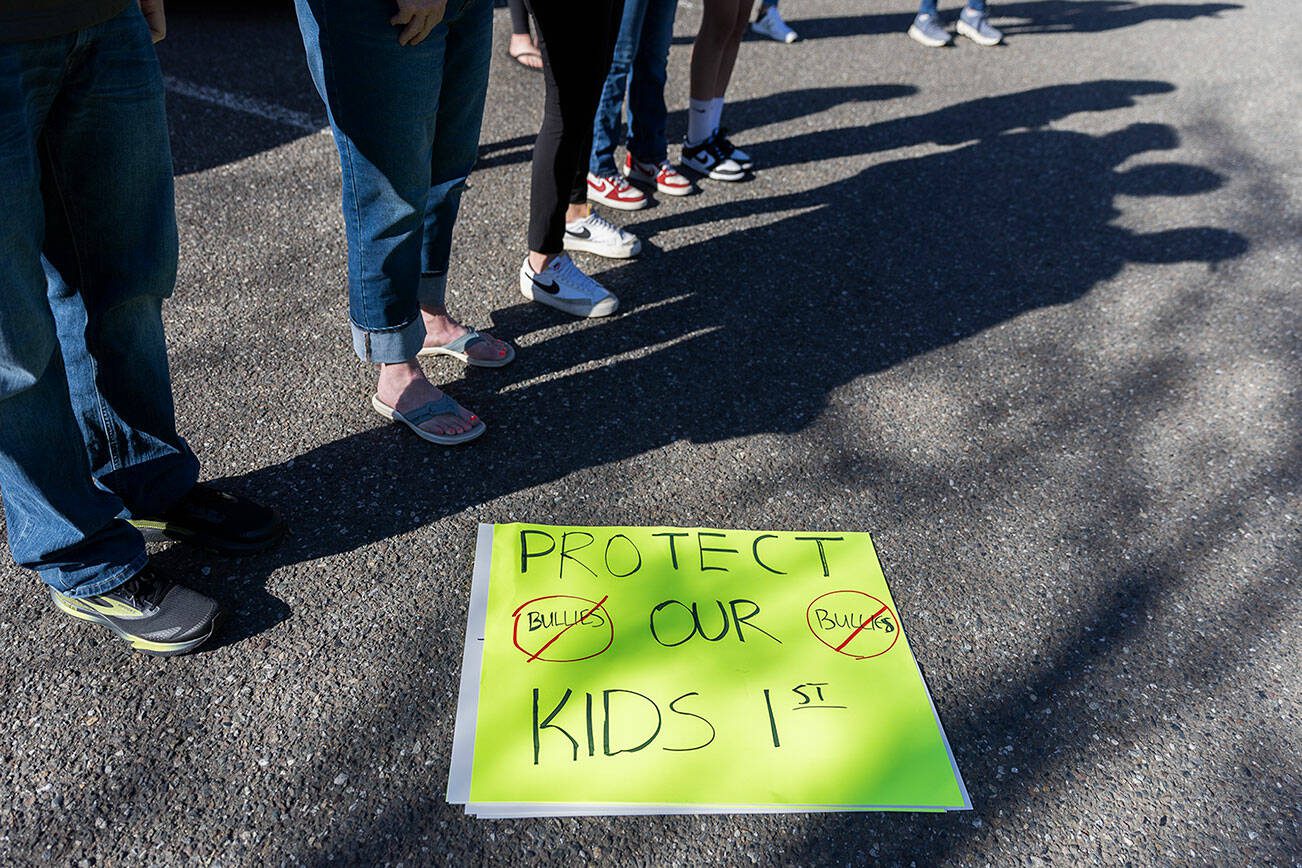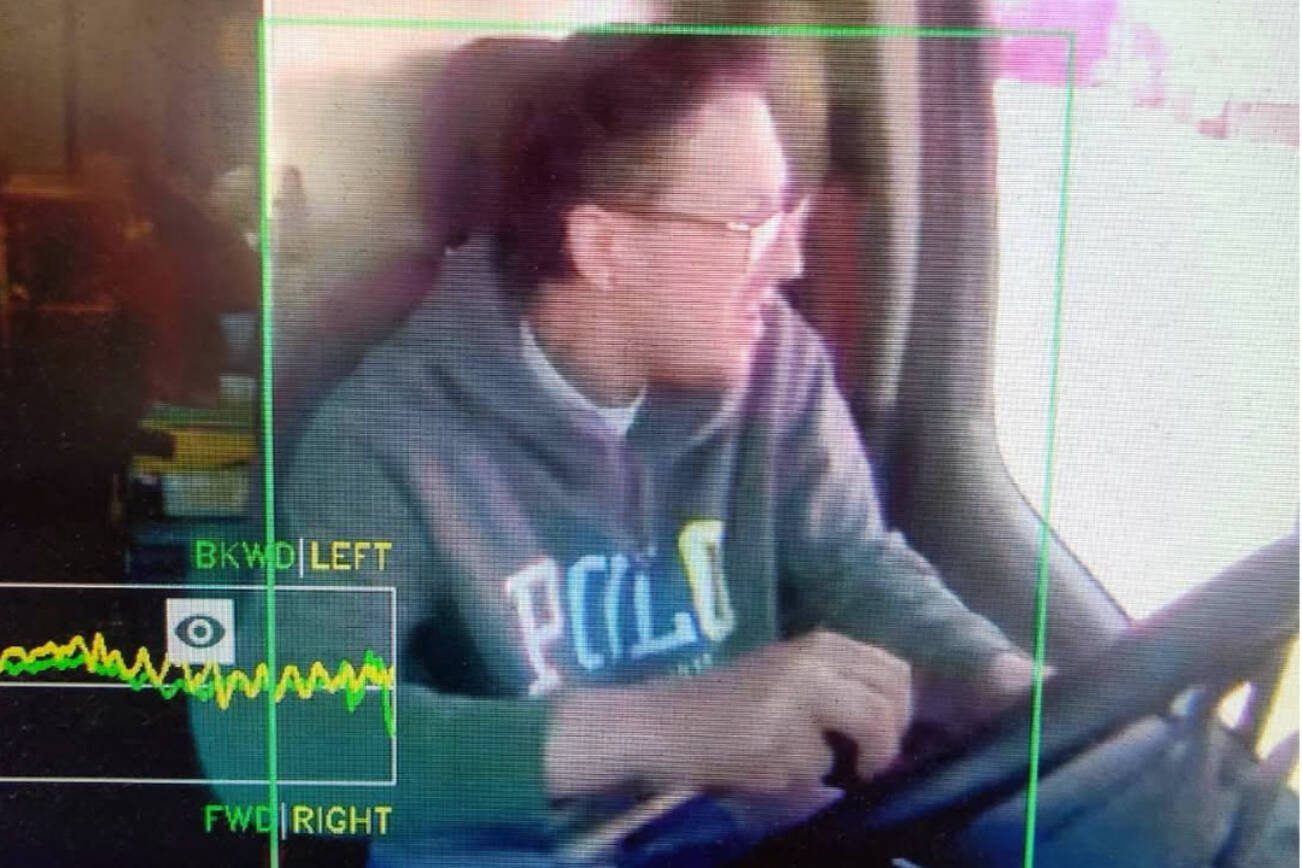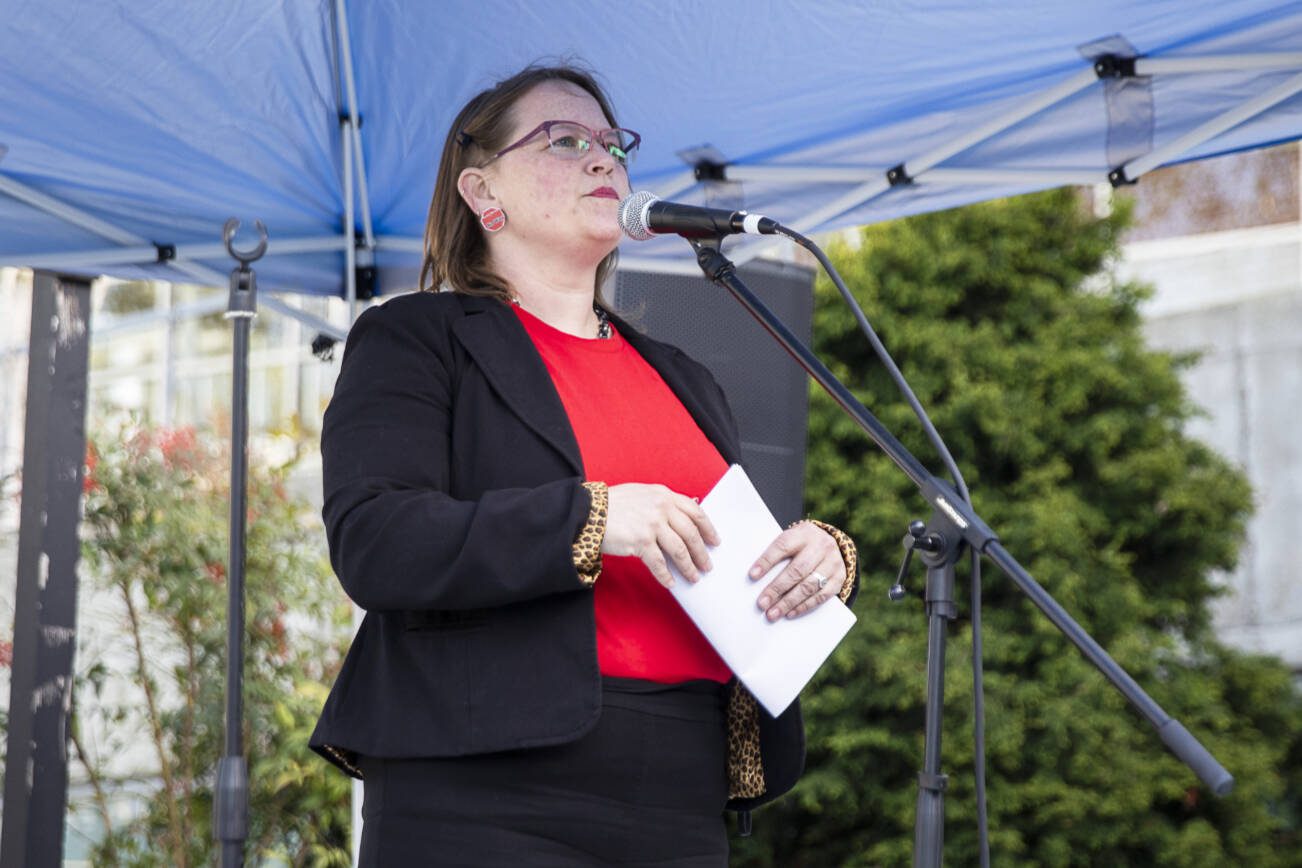Voters on Tuesday were embracing a Tim Eyman-conceived measure to lower car tab fees and ax a major funding stream for Sound Transit.
Initiative 976 was passing statewide with 55.3% in the first night of ballot counting. In Snohomish County, it was leading by a margin of 61.7% to 38.3%.
If the results hold, this will be the third time voters back a ballot measure to cap annual vehicle registration fees, AKA car tabs, at $30.
“I’m incredibly ecstatic and really jazzed about such a huge victory,” Eyman exclaimed.
To win, Eyman overcame a $5 million campaign of opponents who warned in television commercials and mailers that the measure would dry up valuable streams of revenue used to maintain highways, repair bridges, fill potholes and complete a voter-approved expansion of light rail.
“I’m very disappointed. This really was a huge setback for addressing our transportation needs,” said Snohomish County Executive Dave Somers, who also serves on the Sound Transit Board of Directors. “I think people like the idea of cheap car tabs. Now we have to go back to the drawing board because there a lot of projects in the county and statewide that are not going to get built.”
State Sen. Steve Hobbs, D-Lake Stevens, who is chairman of the Senate Transportation Committee, said tough decisions await lawmakers in 2020.
“If it passes, which I think it will, the voters will have spoken and I’m going to have to make appropriate cuts and reductions,” he said. “But the problems remain. This will put our transportation system back 10 years.”
Initiative 976 prescribes much more than a $30 maximum for car tab fees. It also calls for eliminating weight fees and reducing the electric vehicle fee, from $150 to $30.
The measure also gets rid of vehicle license fees levied by transportation benefit districts that exist in Everett, Lynnwood and 60 other cities.
A third component targets a significant source of revenue to carry out Sound Transit 3, or ST3, which voters approved in 2016. It intends to do away with the entire 1.1 percent motor vehicle excise tax (MVET) imposed by Sound Transit, the majority of which is earmarked for ST3.
And it directs the regional transit authority, by March 31, 2020, to retire, refinance or defease all outstanding construction bonds financed with money collected from car tab receipts — if it’s doable. If not, Sound Transit would be forced to live with less MVET revenue.
Somers said Tuesday that Sound Transit has already bonded a lot of the money for ST3 and it will be up to the courts to decide the next step.
The initiative doesn’t preclude the cost of tabs from rising above $30 again. It would require any proposed increase — be it by the state, a local government or Sound Transit — be approved by voters.
And going forward, any new MVET collected by Sound Transit would have to be calculated using Kelley Blue Book values for vehicles rather than the outdated depreciation schedule now in use. It tends to overvalue some vehicles which drives up the cost.
In the campaign, opponents talked little about the initiative’s throttling of Sound Transit. That’s because the regional transit authority has been a target of much criticism due to a surge in car tab costs since passage of ST3.
Part of the reason for the surge was voters approved a near four-fold increase in the excise tax rate used to calibrate the car tabs. Sound Transit’s use of an outdated valuation schedule that overvalues vehicles also contributed to the surge.
Eyman focused on this valuation method in his one-man campaign. He called it dishonest and urged voters to pass the initiative and force Sound Transit to stop using it.
Opponents focused their arguments on how the measure would lead to a loss of hundreds of millions of dollars each year for the state, Sound Transit and cities.
A fiscal analysis prepared by the state Office of Financial Management forecast a $475 million hit to the current state transportation budget. Over six years the loss could reach $1.9 billion. To triage, legislators said they would need to decide where spending can be cut and which projects can be delayed or canceled.
Collectively cities would be looking for ways to make up for the loss of $58.2 million a year, most of it earmarked for street maintenance. Sound Transit would lose out on $328 million a year, according to the same state report.
Voters also approved $30 car tab measures in 1999 and 2002.
Eyman argued that lawmakers could tap the state’s budget surplus in the short run. And if cities and Sound Transit really need the money they could ask voters, he said. They just can’t raise the fees without their approval, he said.
The impact may not be immediate, however. Opponents expect there will be a legal challenge to the initiative that could prevent its implementation in the short term.
“The lawyers are going to be busy,” Somers said.
Results of the next round of ballot counting are expected to be posted Wednesday evening.
Jerry Cornfield: 360-352-8623; jcornfield@herald net.com. Twitter: @dospueblos.
Talk to us
> Give us your news tips.
> Send us a letter to the editor.
> More Herald contact information.



